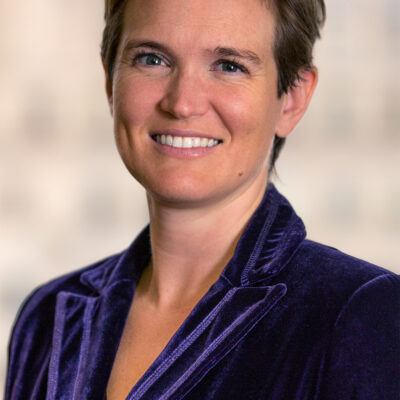An estimated 60,000 D.C. residents have been previously incarcerated. They've paid their debt to society, yet many struggle to rebuild lives after they have served their sentence. The barriers they face include revocation of voting rights, disqualification from housing assistance, and mandated disclosure of previous felonies on job applications, which result in many formerly incarcerated remaining unemployed.
In D.C., these “returning citizens” face particular challenges. Because we are not a state, any resident who receives a sentence of more than one year and one day is incarcerated under the jurisdiction of the Federal Bureau of Prisons, not the local D.C. Department of Corrections. Inmates can be sent to federal prisons anywhere in the country, which severely limits visits from friends and family. Maintaining personal relationships to home is a critical component to successful reintegration upon returning home.
Earlier this spring, the Public Defender Service for D.C. released The Reentry Navigator, a comprehensive resource for returning citizens seeking to secure jobs, housing, and education, as well as to understand new technologies and their legal rights. The 900-page book is a critical resource for all returning citizens or anyone preparing for release from incarceration. ACLU-DC Board member Courtney Stewart, the Co-Founder and CEO of The National Reentry Network for Returning Citizens, has been on the frontlines of addressing these challenges since his own reintegration back into society. He answered a few questions about the importance of this work.
Why did you choose to dedicate your work to supporting returning citizens?
I’m a returning citizen and I remember my childhood with the circumstances that led me to into the criminal legal system. I was living in poverty, not having what I needed for school, being picked on as a child in the neighborhood, growing up trying to take care of myself, sleeping in hallways and running away from home, being involved in foster care. It was a laundry list of things as a young person that affected me. So, it was easy for me to get involved and give back once I got older. I decided I didn’t want to be part of the criminal legal system anymore. I had firsthand experience with how this affects a Black boy who ends up in the criminal legal system. I believe that [supporting returning citizens] was the most foolproof way to stop this cycle within my family, so there was some self-interest, and I feel like it is my calling.
What’s it like for someone from D.C. who’s been incarcerated to come back home?
You basically come back home to the same nonsense. A lot of people don’t acknowledge that, because coming home after prison is freedom. You’re free from a cage and coming home, that freedom, is the only thing you’re talking about. You have an opportunity to do things you haven’t been able to do for however many years you’ve been incarcerated. But you come home to the same judgement, same barriers, same misinformation, same false pretenses. Coming home from prison is very deceiving and difficult. Individuals need a lot of support and a realistic view of what’s going on, instead of having to hit a brick wall. Not having that support is why so many go back to prison or have dependency issues with drugs.
What policy changes would be needed to best support returning citizens coming home after prison?
A lot has to change. The criminal legal system has had a hold on the Black community in particular for a long time. That system has to give up some of its hold, some would say “dismantle.” You can’t keep having the same system and expecting things to be different.
But the community has as much responsibility as the criminal legal system. It’s where a lot of changes have to take place. The change has to take place in the family and has to take place in the community. Some of the policies are evident: record sealing, expungement, which has a direct impact on people getting loans, jobs, moving forward in their lives. Especially when people can Google you these days. That policy has an impact.
We need to address that, but that’s at the top. We have a lot at the bottom that really needs to be changed. That’s where the seed is planted and watered and fertilized, so we should have a bottom-up approach, too. It’s bigger than policy and legislation. I think the ACLU is a perfect example, we are involved with what’s happening on the ground. It’s the same with the National Reentry Network.
If you look at the system, all of us are part of the problem and so all of us have to be part of the solution. People point fingers because we want others to do the work, but we have to set the example of what needs to be done so others can follow that example.

